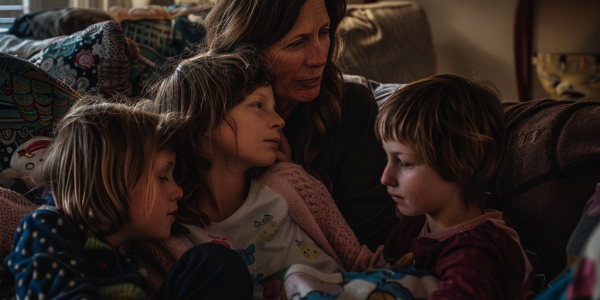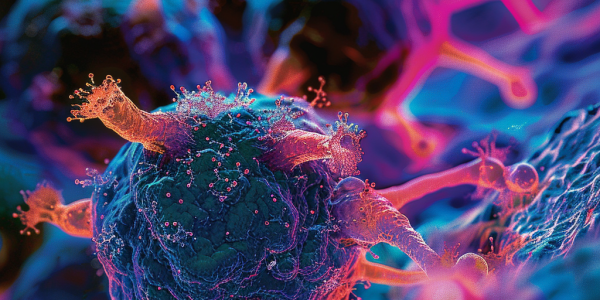Breakthrough Research Offers Hope for Women with BRCA Gene Mutations
Recent advancements in cancer research focus on BRCA gene mutations, which significantly increase the risk of breast and ovarian cancers. Scientists are isolating these mutations to develop targeted therapies, potentially reducing the need for drastic measures like radical mastectomies. This innovative approach aims to enhance understanding of BRCA1 and BRCA2 functions, offering hope for women at risk and transforming cancer prevention and treatment.
St. Cloud Community Unites for Breast Cancer Awareness Month
October is Breast Cancer Awareness Month, and the Pink Heals St. Cloud Chapter is leading the charge in St. Cloud, Florida, to support cancer warriors and their families. Through events like Pinktoberfest and the iconic Pink Firetruck Pull, the community unites to raise awareness and funds for those affected by cancer. Join the movement to make a positive impact this October.
World Dense Breast Day: Promoting Awareness for Better Breast Cancer Detection
World Dense Breast Day, observed on September 25, 2024, highlights the critical link between breast density and breast cancer detection. This annual event raises awareness about the challenges posed by dense breast tissue in mammograms, emphasizing the need for tailored screening approaches and informed patient-provider discussions. Join the advocacy efforts to empower women and improve breast cancer screening effectiveness.
Study Reveals Challenges of Early Breast Cancer Detection in Nigeria
Learn about the challenges of early breast cancer detection in Nigeria and the importance of health education and timely diagnosis. Efforts to overcome barriers in low-income countries like Nigeria are crucial for improving survival rates and reducing the burden of the disease.
Groundbreaking Blood Test Predicts Breast Cancer Recurrence Years in Advance
Groundbreaking new blood test hailed as major breakthrough in fight against breast cancer, predicting risk of cancer returning 3 years before traditional scans. ‘Incredibly exciting’ liquid biopsy could significantly improve chances of overcoming disease. Research showcases effectiveness of personalized test in detecting cancer DNA in blood, identifying patients at risk of relapse up to 41 months in advance. Experts optimistic about proactive approach to treatment based on predictive capabilities.
Study Reveals Weight Gain Concern Among Breast Cancer Survivors
Recent research presented at the Endocrine Society’s ENDO 2024 annual meeting reveals a concerning trend among breast cancer survivors. Nearly one in five survivors may experience weight gain exceeding 10% of their body weight post-treatment. This weight gain not only increases the risk of cancer recurrence but also raises the likelihood of cardiovascular diseases. Experts emphasize the importance of daily physical activity in helping women maintain a healthy weight following breast cancer treatment, highlighting the need for continued support and awareness in addressing post-treatment issues.
Dance Moms Star Kelly Hyland Reveals Breast Cancer Diagnosis
Dance Moms star Kelly Hyland shares her breast cancer diagnosis journey, from a clean mammogram to a shocking stage 1, grade 3 invasive carcinoma diagnosis. Despite the unexpected news, Kelly remains determined to face the challenges ahead with courage and resilience.
Olivia Munn Opens Up About Challenging Battle with Breast Cancer
Olivia Munn, the 43-year-old actor, shares her challenging battle with breast cancer in a recent interview. Despite facing luminal B breast cancer in both breasts, Munn remains positive and grateful for her health. Her story highlights the importance of aggressive treatment for aggressive cancers, serving as an inspiration to many.
5 Evidence-Based Strategies to Reduce the Risk of Breast Cancer
Learn about five evidence-based strategies to reduce the risk of breast cancer, including maintaining a healthy weight, exercising regularly, breastfeeding, consuming a healthy diet, and limiting alcohol intake. By incorporating these lifestyle changes, you can take proactive steps towards promoting overall well-being and potentially lowering the likelihood of developing breast cancer.
Breakthrough in Cancer Treatment Research Achieved with New Immune System Technology
Bar-Ilan University researchers have made a groundbreaking advancement in cancer treatment with new immune system technology, allowing for personalized treatments based on individual immune responses. By monitoring immune system changes around cancer cells, insights into patient reactions to immunotherapy are gained. This research, led by Dr. Shahar Alon, sheds light on the interaction between immune and cancer cells, offering valuable information for tailored treatment decisions and improving patient outcomes.










